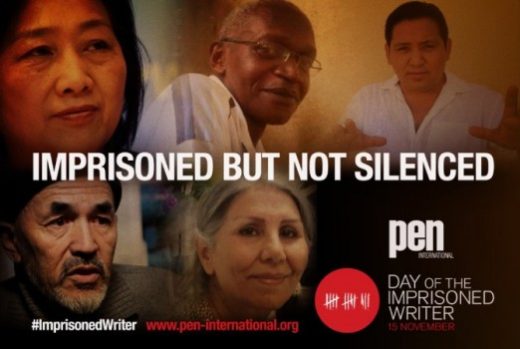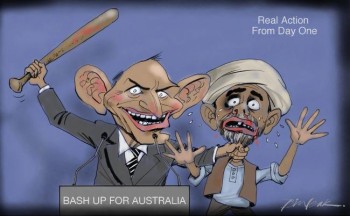Dutton’s message: torture works

Yesterday I had a Twitter conversation about Kathryn Bigelow’s movie, Zero Dark Thirty, which was shown on SBS last night.
Many angry critics have described the film as CIA propaganda advocating torture, and accused Bigelow of making an immoral argument that torture works. That wasn’t my reading as I argue here.
This revisiting of the film and the arguments surrounding it made it obvious to me that the message “torture works” is precisely the message the current Prime Minister Malcolm Turnbull, Immigration Minister Peter Dutton, Scott Morrison before him, and several former Prime Ministers including Kevin Rudd and Julia Gillard have sent to the world since the indefinite detention, off-shore and previously in the hell holes of Woomera and Baxter, of waterborne asylum seekers began.
They are not even particularly subtle about conveying this message: forcing women, children and men to live in circumstances in which they are tortured will deter others from attempting to seek asylum in Australia. It’s that stark.
To dissuade attacks from rusted on ALP supporters: Paul Keating built Woomera. I went there. It was one of Dante’s circles of hell. So please don’t come at me with the usual defence of your political party’s position on asylum seekers. There’s a bee’s dick of difference between the major parties.
Every time politicians insist that bringing refugees from Manus and Nauru to Australia will “start the drownings at sea again”, he or she is arguing, to the world, that “torture works.”
Frank Brennan, John Menadue, Tim Costello and Robert Manne have here proposed a solution to the current ghastly impasse. Their proposal retains the turn-back policy:
We believe there is no reason why the Turnbull government cannot do now what the Howard government previously did – maintain close intelligence co-operation with Indonesian authorities, and maintain the turn-back policy, while emptying the offshore processing centres and restoring the chance of a future to those we sent to Nauru or Manus Island three years ago or more by settling them either in Australia or, if any are willing, in other developed countries. Like Howard, Turnbull could maintain the offshore processing centres in case of an emergency.
Boats are to be turned back to their point of departure, usually Indonesia or in the case of Sri Lankan refugees, southern India where they continue to live as stateless people with few, if any rights.
The proposition put by Brennan et al would at least thwart the message that torture works, to which our politicians seem alarmingly attached. It’s by no means an ideal solution, but it could be our next step in addressing a situation that in its current manifestation is hideously wrong in every possible way.
Critiquing their proposition is a post in itself, and I won’t do that here.
As I argue Bigelow’s film demonstrated, the proposition that torture works is in itself a terrifying premise for debate. Who are we, that we would engage in such a debate in the first place?
It isn’t about whether or not torture works. It’s about torture even being considered, and then implemented as an option. You might argue that no politician foresaw or planned the circumstances that have evolved on Manus and Nauru, and you’d likely be correct. So we have come to torture by accident, rather than by design. Having arrived at that point, even accidentally, we are culpable and every day we reinforce the message that torture works, we add to our burden of culpability. What was initially accidental, thoughtless, ignorant, uncaring, politically self-seeking becomes, in the maintaining of it, deliberate.
Which puts us in the company of the CIA and its propaganda, does it not? Not to mention Donald Trump.
This article was originally published on No Place For Sheep.
Like what we do at The AIMN?
You’ll like it even more knowing that your donation will help us to keep up the good fight.
Chuck in a few bucks and see just how far it goes!
Your contribution to help with the running costs of this site will be gratefully accepted.
You can donate through PayPal or credit card via the button below, or donate via bank transfer: BSB: 062500; A/c no: 10495969











